Float Science
The benefits of floating are backed by scientific research – learn more below.
Clinical research investigating Floatation-REST, although limited, has reported largely beneficial effects across a range of different stress- and pain-related conditions, including: hypertension, chronic tension headaches, chronic muscle tension pain in the back and neck, and stress-related painwith “burnout depression”.
Thus far there have been several Floatation-REST studies focused on individuals with clinical anxiety, including generalized anxiety disorder, post traumatic stress disorder (PTSD), panic disorder, agoraphobia, and social anxiety disorder, with many patients presenting with comorbid major depressive disorder. The evidence published thus far suggests that Floatation-REST is a safe technique for rapidly reducing levels of stress, pain, and anxiety. Clinical trials are currently underway in America, Germany, and Sweden investigating the long-term impact of floating in patients with anxiety disorders, anorexia nervosa, chronic pain, fibromyalgia, and insomnia. As the evidence base continues to grow, we will continue to update this repository of peer-reviewed publications studying the clinical effects of Floatation-REST.
Float Science 1: The Elicitation of Relaxation and Interoceptive Awareness Using Floatation Therapy in Individuals With High Anxiety Sensitivity
Summary: In this Float study 31 participants with high Anxiety Sensitivity were randomly assigned to undergo a 90-minute session of Floatation-REST.
Systolic BP reduced by approx. 5 mm Hg – diastolic BP showed a more pronounced reduction of approx. 13 mm Hg (often within the first 5 minutes of the float session – substantial reduction in state anxiety and muscle tension – substantial increases in serenity and relaxation – significantly enhanced awareness and attention for cardiorespiratory sensations.
The float environment elicited a relaxation response that was evident both physiologically (via reduced Blood Pressure) and psychologically (via reduced levels of state anxiety and muscle tension and increased levels of relaxation and serenity). Floatation-REST induced a state of relaxation and heightened interoceptive awareness in a clinical sample with high Anxiety Sensitivity. The paradoxical nature of the anxiolytic effect in this sample is discussed in relation to Wolpe’s theory of reciprocal inhibition and the regulation of distress via sustained attention to present moment visceral sensations such as the breath.
The reduction in state anxiety is likely a by-product of the float environment, which minimises exposure to most external triggers of stress and anxiety, providing a chronically anxious and hyper vigilant nervous system with a rare respite from the daily barrage of external triggers that it has been sensitised to over the years.
The reduction in muscle tension, especially in the upper and lower back, was one of the more prominent effects found in this study and could play an important role in the positive benefits derived from Floatation-REST.
Feinstein et al, Laureate Institute for Brain Research, Univ. of Tulsa, Tulsa, Oklahoma
For full Study and references, Pub date Feb 2018 Science Direct
Float Science 2: Floatation restricted environmental stimulation therapy and napping on mood state and muscle soreness in elite athletes: A novel recovery strategy?
Analysis of pre to post FLOAT data resulted in significant improvements to 15 of the 16 mood-state variables and perceived muscle soreness.
Furthermore, when FLOAT was combined with napping, there was an additional significant improvement in 5 of the 16 mood-state variables. This is the first study to assess changes in mood-state and muscle soreness following the use of this potential recovery strategy in elite athletes.
Largest effects were seen in the following sub-scales:
– Less worn-out
– Less tired
– More relaxed
– More at ease
– More fresh
All athletes volunteered to participate in the study and had not previously taken part in a FLOAT session. The study was completed by 28 male and 32 female athletes across a wide range of sports (athletics = 8; basketball = 8; boxing = 2; cycling = 10; football = 11; netball = 15; rowing = 2; rugby = 2; swimming = 2). All athletes represented their country at an international-level for their chosen sport and took part in the study during the in-season phase of training over the course of 6 months.
There was a significant (p < 0.01) reduction in perceived muscle soreness pre to post FLOAT (Fig. 1). The mean reduction in muscle soreness across the whole group was − 1.6 (out of 10) and resulted in a large effect size (ES ±90% CI; − 0.87 ±0.15). The greatest pre to post change was seen in the “relaxed” mood-state sub-scale with a mean change of 1.5 ± 1.3.
The findings in this study are in support of previous research, highlighting improvements in mood following a Float REST (Van Dierendonck & Te Nijenhuis, 2005). Indeed, a meta-analysis reported that floatation REST had large improvements in psychological wellbeing.
Matthew Driller & Christos Argus
A Health, Sport and Human Performance, University of Waikato, Hamilton, New Zealand
B ACT Brumbies Rugby, Canberra, Australia
C Research Institute for Sport and Exercise, University of Canberra, Canberra, Australia
For full study and references, Pub date Oct 2016 Science Direct
Float Science 3: Examining the short-term anxiolytic and antidepressant effect of Floatation-REST
Summary: This Float Study was conducted on a group of 50 anxious and depressed participants. Justin Feinstein is the head researcher of the Float Clinic and Research Center, a state of the art floatation research facility housed in the Laureate Institute for Brain Research.
Nearly 75% of the entire sample, and 82% of the severely anxious subgroup, reported that they had achieved more relaxation with Floatation-REST than any of the other treatments or techniques they had tried in the past.
Side effect checklist. The top 10 rated effects were all positive, with the top 3 being ⠀
⠀
1.“A feeling of total serenity and peacefulness”, ⠀
2.“Total relaxation of body (without any muscle tension)”, and⠀
3.“Feeling completely refreshed, like the reset button was hit.”⠀
⠀
Other significant findings⠀
– The float experience caused a reduction in state anxiety that was evident across all 50 participants, leading to a significant pre- to post-float change on the Spielberger State Anxiety Inventory (STAI) at the group level [t(49) = -15.16, p < .0001, d = 2.15].⠀
⠀
– Despite a large baseline difference, the anxious group’s average post-float anxiety had reached levels slightly lower than the pre-float anxiety reported by the non-anxious reference sample.⠀
For full RESEARCH ARTICLE and references, visit:
Or search for Floatation REST on the PLOS ONE JOURNALS WEBSITE⠀
OPEN ACCESS & PEER-REVIEWED.
Published: February 2, 2018






